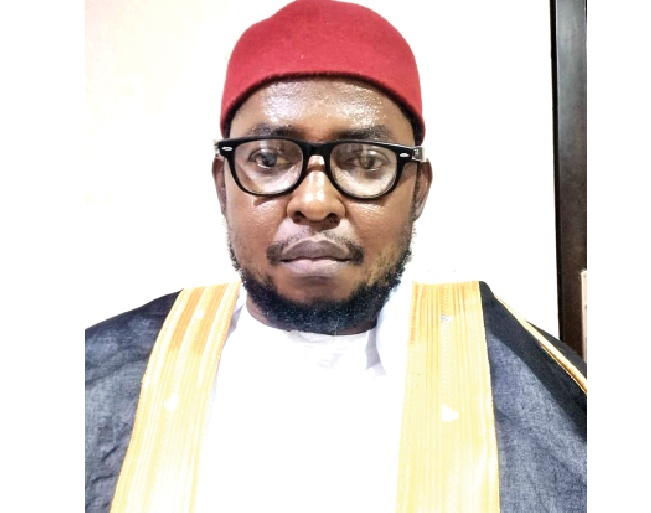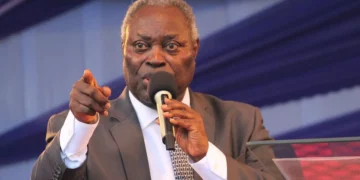As the sacred month of Ramadan unfolds, Muslims around the world find themselves twenty days into this period of reflection and devotion. Soon, we will be entering the last ten nights of this holy month, which carry a significance that surpasses that of ordinary days. These blessed evenings encompass the esteemed Night of Decree, the night when the Qur’an was revealed to humanity. Allah has articulated the importance of this night in His divine words: “Indeed, We sent it down during the Night of Decree. And what can make you know what is the Night of Decree? The Night of Decree is better than a thousand months. The angels and the Spirit descend therein by permission of their Lord for every matter. Peace it is until the emergence of dawn.” (Surah Al-Qadr, 1-5).
This revelation highlights the unique spiritual opportunity that awaits us during this time. The Night of Decree, known as Laylat al-Qadr, is not just an ordinary night; it is a night imbued with limitless blessings and forgiveness. The notion that it is “better than a thousand months” serves as a profound reminder of the immense favour and mercy that Allah bestows upon His creation.
In the following days, Muslims are encouraged to seek the Night of Decree with great diligence, as it is said to fall within the last ten nights of Ramadan. Aisha, the beloved wife of the Prophet Muhammad, sallallaahu alayhi wa sallam, reported that he would exert himself in worship as these nights approached, awakening his family and encouraging them to engage in acts of devotion. This tradition of the Prophet sallallaahu alayhi wa sallam demonstrates his deep commitment to spiritual renewal and dedication, serving as a model for us all.
During these last ten nights, the Messenger of Allah (peace be upon him) would isolate himself in prayer and contemplation, dedicating himself to worship in a manner that surpassed his efforts throughout the rest of the month. This seclusion was marked by extraordinary levels of focus and devotion, indicating the profound importance of this time. Aisha also narrated, “He would seclude himself in the last ten nights of Ramadan until Allah took him.” (Bukhari and Muslim).
This practice provides a valuable lesson in the art of spiritual dedication. As we reflect on the hectic nature of our daily lives, the example set by the Prophet, sallallaahu alayhi wa sallam, encourages us to carve out moments of solitude for worship, supplication, and reflection. Such moments can allow us to bond intimately with our Creator, express our gratitude, and seek forgiveness.
Indeed, the last ten nights represent a unique opportunity for closeness to Allah, a time for self-examination, and a means to engage in sincere spirituality. It is a period during which we can dedicate ourselves wholeheartedly to prayer, supplication, remembrance, and the recitation of the Qur’an. Aisha’s inquiry to the Prophet sallallaahu alayhi wa sallam about the proper supplication to make on this auspicious night reflects the encouraged practice of seeking divine connection through sincere du’a (supplication). The Prophet advised, “Say: O Allah, indeed You are Most Forgiving and love forgiveness, so forgive me.” (Tirmidhi, authenticated by Al-Albani).
This profound advice encapsulates the essence of humility and yearning for Allah’s mercy, and it inspires how we should frame our prayers during the last nights of Ramadan.
As this blessed month draws to a close, fulfilling our charitable obligations, particularly Zakat al-Fitr, becomes increasingly vital. This essential act of charity purifies our fast, removing any trivial speech or harmful actions that may have inadvertently accompanied our fasting. It also serves as a means of providing sustenance for those in need. Ibn Abbas, may Allah be pleased with him, reported that the Messenger of Allah sallallaahu alayhi wa sallam made Zakat al-Fitr obligatory as a form of purification for the fasting person from any indecent acts and verbal excess and as a means to support the underprivileged. He stated, “Whoever pays it before the prayer, it is accepted Zakat; and whoever pays it after the prayer, it is merely a charity among the charities.” (Abu Dawood and Ibn Majah).
This emphasis on charitable action reinforces the idea that Ramadan is a time for generosity and compassion. Zakat al-Fitr is specifically designed to encourage Muslims to remember those less fortunate than themselves. It serves as a reminder that our blessings are not solely for our consumption but rather should be shared to uplift those who are struggling.
Zakat al-Fitr is traditionally drawn from staple food items, ensuring that charity is grounded in practicality and meets the basic needs of recipients. As Ibn Umar, may Allah be pleased with him, articulated, “The Messenger of Allah sallallaahu alayhi wa sallam, made Zakat al-Fitr obligatory, consisting of one Sa’ of dates or one Sa’ of barley for the free and the slave, the male and the female, the small and the great among the Muslims.” (Bukhari and Muslim).
In this way, Zakat al-Fitr embodies egalitarian principles; it encourages giving regardless of one’s status, reflecting Muslims’ collective responsibility toward one another.
As the completion of Ramadan approaches, we anticipate the arrival of Eid al-Fitr, the Day of Reward, a day steeped in joy and happiness. It is a day that Allah has prescribed for us to celebrate and rejoice, reflecting on the completion of our month of fasting and devotion. Eid al-Fitr is not merely a festival; it is a day for reflecting on the sacrifices made throughout the month and a time for communal gathering, remembrance, and gratitude to Allah.
The Prophet sallallaahu alayhi wa sallam, beautifully described the joy of the fasting person, stating, “For the fasting person, there are two moments of joy: a joy when breaking the fast and a joy when meeting their Lord.” (Bukhari and Muslim). These words encapsulate the essence of Eid: a celebration of both spiritual fulfilment and the joy derived from communal worship and connection with Allah.
On this auspicious day, we are encouraged to gather with family and community, offering prayers of gratitude for the blessings we have received. Eid al-Fitr serves as a reminder to extend generosity to others so that food and sustenance are shared, reinforcing the bonds of kinship and community. It is a day to reach out to those in need, ensuring that they too can partake in the joy of Eid.
Furthermore, as we navigate the last days of Ramadan, let us embrace this period as an opportunity to multiply our prayers, our remembrance of Allah, and our recitation of the Qur’an. Engaging in good deeds during these concluding moments of Ramadan can be a means through which we strive for forgiveness and a deeper connection with our Creator.
We aspire to be counted among the successful, those who attain the high ranks and abundant blessings available during Ramadan. Our sincere efforts during this sacred month can lead to a transformative spiritual experience, reshaping our hearts and guiding our actions beyond the initial days of Ramadan, influencing our approach to life long after the month has ended.
In closing, let us remain ever mindful of the teachings of the Prophet Muhammad sallallaahu alayhi wa sallam, and aim to embody the principles of faith, devotion, and charity that underpin the teachings of Islam. May we strive to emulate his character, his kindness, and his dedication to Allah.
May this Ramadan bestow upon us the grace and mercy that we seek. May we emerge renewed and invigorated to serve our community and uphold the values of Islam in every facet of our lives.
As we reflect on the lessons contained within this sacred month, let us remember that Ramadan is not merely a period marked by fasting; it is a holistic journey—an opportunity for self-improvement, community spirit, and divine connection. In forging these pathways, we re-engage with our faith, finding strength, unity, and purpose along the way. May we continue to be among the blessed, forever seeking the pleasure of Allah.
This is a précis of the Khutbah delivered by Imam Haroun Muhammad Eze, Esq at the National Mosque Abuja on Friday, Ramadan 21, 1446 AH:





